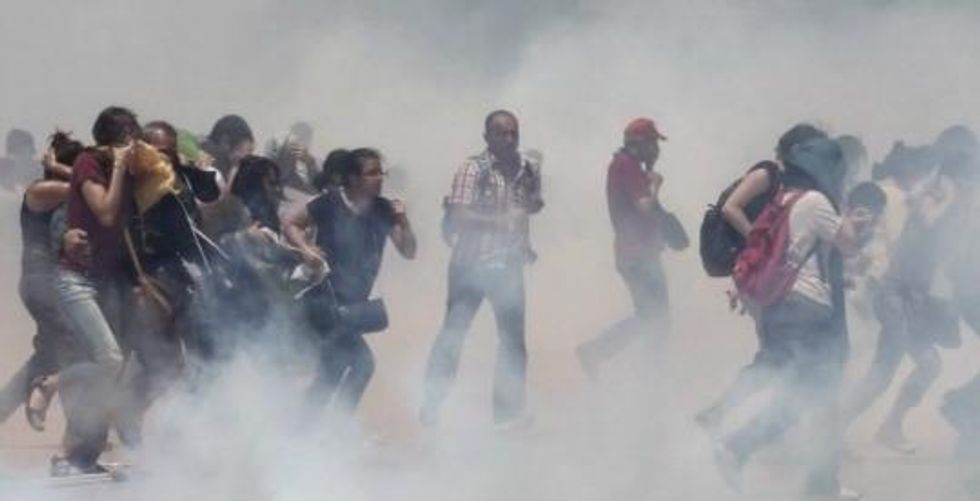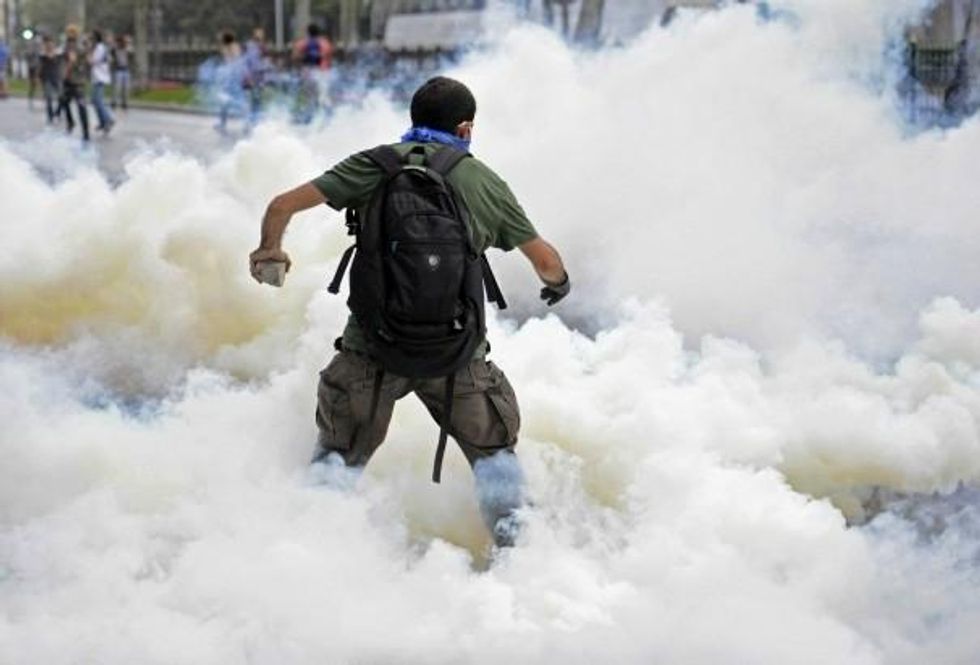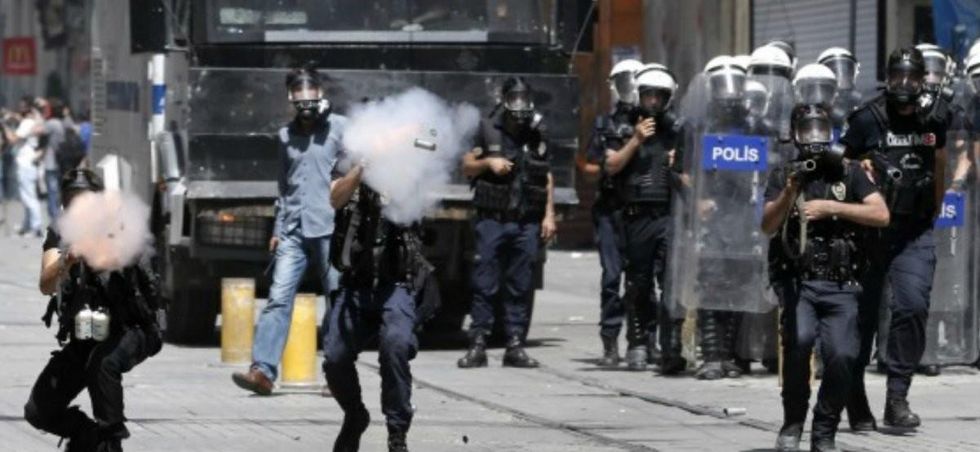When a nation's security apparatus amasses a 62 ton stockpile of tear gas, it's only a matter of time before they're likely to use it. And as recent events in Turkey have shown, the results can be frightening.
"Protests in Turkey once again expose these links between capitalist interests and police violence at the heart of tear gas history." -Anna Feigenbaum, expert
When protests erupted across the country last week, the police responded with massive force--deploying thousands of riot police and armored carriers mounted with water cannons. In addition to standard gear, the police were also armed with tear gas and pepper spray. And plenty of it.
As RT reports, citing the Turkish newspaper Sozcu, the Ankara government "has bought $21 million" worth of "tear gas and pepper spray - mainly from US and Brazil - over the past 12 years." The amount of both, the news agency reported, was equivalent to 62 tons of noxious, eye-burning, cough-inducing chemical agents either pressurized into canisters or available for the spray guns used by police.
As images of cloud-filled streets in Istanbul and other cities circulated the globe, some used the occasion to once again spotlight the US role as the dominant player in the global tear gas business.
According to RT:
The US has a history of selling tear gas and other crowd control munitions to countries wracked by widespread protest. Amnesty International harshly criticized the US State Department for approving export licenses for the shipment of crowd control munitions and tear gas to Egypt amidst the violent and often lethal crackdowns on protesters by security forces in 2011.
Amnesty confirmed that one US companies had shipped 21 tons of ammunition to Egypt - enough for 40,000 rounds of tear gas grenades and canisters - in addition to a separate shipment of 17.9 tons.
And Anna Feigenbaum, lecturer at Bournemouth University and an expert on the tear gas industry, calls the events in Turkey only the most recent example of a long history in which governments--and sometimes private industry--violently suppress popular uprisings by employing such weapons.
Writing at Common Dreams on Tuesday, Feigenbaum explains:
It is not difficult to trace these tear gas deployments back to corporate profiteers. The majority of the world's tear gas trade comes from the United States, along with Brazil and Israel. The tear gas industry was founded on alliances between military officers, university chemists and businessmen. Take the example of Federal Laboratories, a major tear gas supplier started by a WWI veteran back in the 1920s with donated samples from the US Chemical Warfare Service. Marketed to local police forces with the help of enlisted PR experts, tear gas was first used on a mass scale to break down worker's strikes and quell uprisings in colonized territories. Today, as US leaders publicly condemn the so-called 'weaponization' of tear gas abroad, its corporations continue to cash in on the profits of mass uprising.
Protests in Turkey once again expose these links between capitalist interests and police violence at the heart of tear gas history. The all too familiar images of streets covered in poison clouds should echo as a message from the trenches. Those soldiers knew all too well that when tear gas filled the air, there was likely something more deadly to follow. Far from a humanitarian weapon, it is time that we see tear gas as a sign of just how inhumane capital-driven visions of peace-keeping have become.
__________________________________________________________



